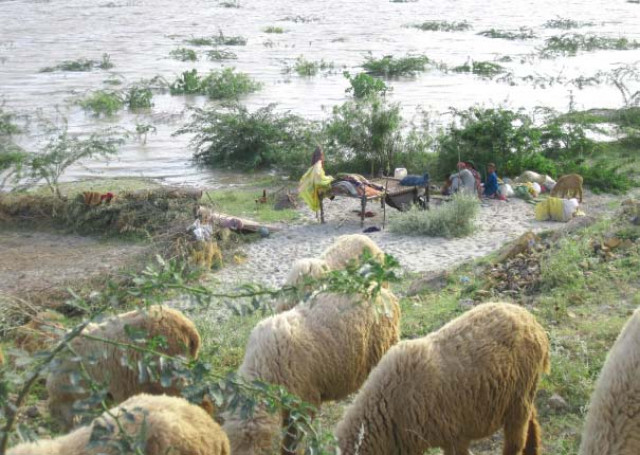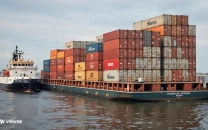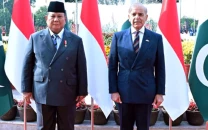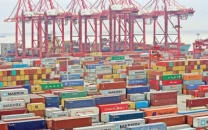Industry, farmers in turmoil
While herdsmen struggle to sustain their livestock, middlemen are buying up cattle, goats and sheep.

Villagers who own small herds seem to be out of options as they lack the resources to relocate to higher grounds.
“Yes, I know the water is rising and no, I am not leaving!” said Dilmurad, a resident of Mohammad Husain Goth on the banks of the mighty Indus.
Standing among his eight sheep, Dilmurad pointed to a completely submerged area and lamented: “That was where we built our hut to sleep and live in.”
Dilmurad said that moving to a different town would involve spending money on fodder for the animals. “I cannot afford all this,” he held.
Mohammad Hasan, another villager, made his way across a bridge over River Indus from Sajawal to Thatta.
“I had to sell six sheep at really low rates to the local aarhti (middleman) because I could not afford to feed them,” he lamented.
The middlemen take advantage of the fact that villagers have no choice but to sell their animals, so they offer very little money in return.
Representatives of the provincial livestock department have confirmed that in upper Sindh a cow that would normally be worth between Rs80,000 and Rs90,000 is currently fetching only about Rs20,000 or less.
District Officer Livestock Dr Qaiser Ali Jatoi explained: “Those animals that are raised for sacrificial purpose need special care. Landless herdsmen do not have the resources to provide such care if they have to move away from grazing lands because that entails buying fodder.”
Exodus in Sindh
Livestock officials estimated that hundreds of cattle are leaving kachcha areas every hour to head to higher ground. However, they pointed out that those with only a few animals were hesitant to leave.
“The poorest of the lot are landless herdsmen who cultivate small patches for food and rear a dozen or so animals,” explained Aslam Pervez, Director Veterinary Research and Diagnosis Sindh.
Most of these small farmers do not have the social contacts to be able to get accommodation in neighbouring areas. Neither do they have links with local landowners or the middlemen to arrange for credit.
As water continues to climb in Thatta district and other parts of Sindh, villagers are moving as far away as possible from the river, en masse.
Livestock losses have topped at least two million in the wake of the floods. International agencies, including the United Nation’s Food and Agriculture Organisation (FAO), have predicted millions more may perish in the coming days.
“Prices will definitely increase by the time people in cities head to buy animals for sacrifice,” asserted Meat Merchants Association General Secretary Tahir Pervez.
While livestock prices are all set to go up, those who have persevered all year to rear the animals seem to be on the losing end of the equation.
Many of them are being forced to sell their herds for unreasonably low prices due to lack of affordable fodder and medication. Some herdsmen, like Mohammad Hasan, were able to scrape together enough cash to make the trip to safer areas.
“All we have left is about a dozen animals but at least we can take these to Makli before it is too late,” said Hasan as he shepherded the group down the National Highway.
Other not so fortunate ones like Dilmurad have taken their families to the highway, hoping that the rising waters will not inundate the road.
“These animals keep my family alive,” said Dilmurad as he stared over the vast expanse of water ahead. He sighed and added helplessly: “If I sell them so cheaply and go to the relief camp, we’ll starve anyway.”
Published in The Express Tribune, August 25th, 2010.



















COMMENTS
Comments are moderated and generally will be posted if they are on-topic and not abusive.
For more information, please see our Comments FAQ